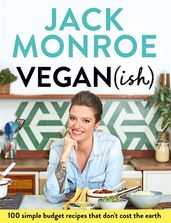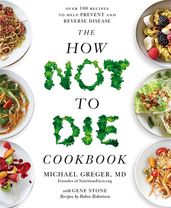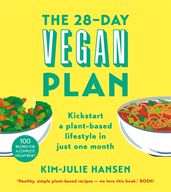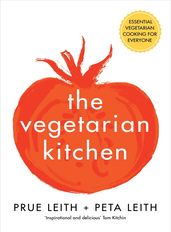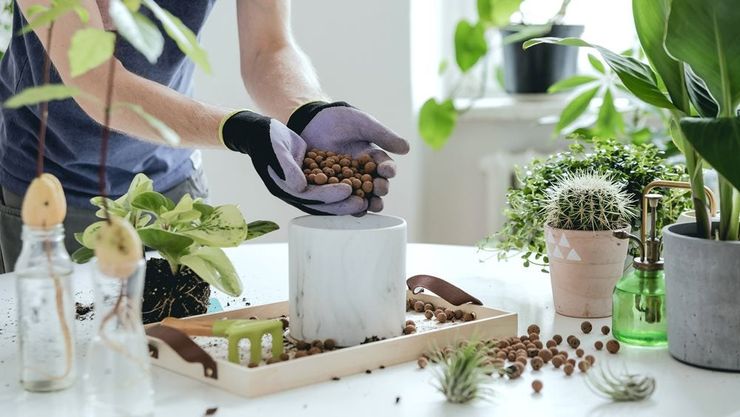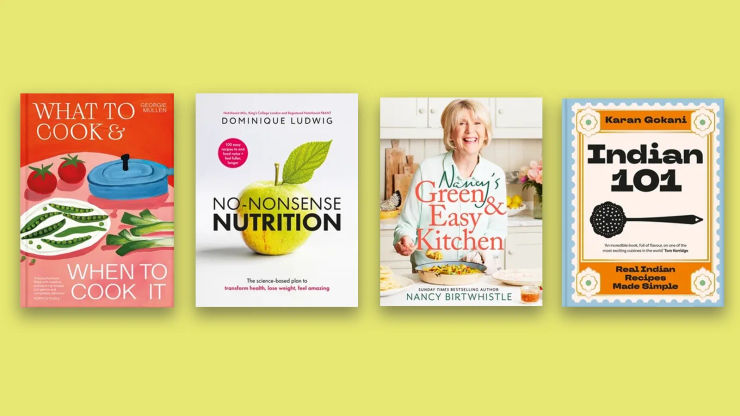Change the world by eating a vegan diet just one day a week
As more and more people turn to a vegan or flexi-vegan lifestyle, Ali Roff Farrar takes a look at the environmental and health benefits of a plant-based diet.
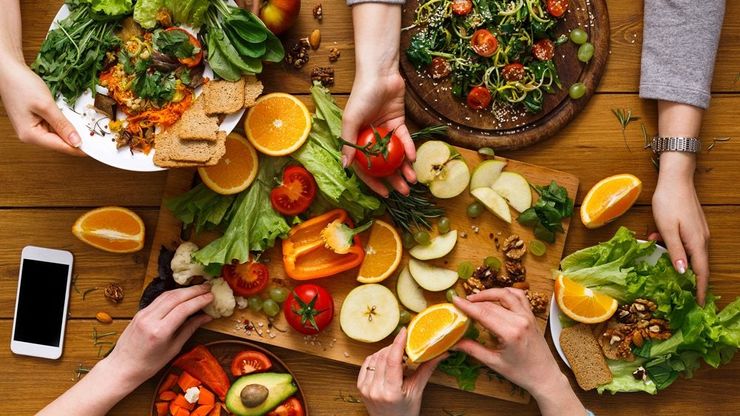
As the devastating effects of global warming continue to hit the headlines and spark protests around the world, can eating a vegan diet really have an impact on climate change? Yes, finds Ali Roff Farrar. Here, she investigates the benefits of being a vegan, both for the environment and your own health, and takes a look at how you can make a vegan or plant-based diet work for you.
‘Veganism'. It can be a daunting word. And yet everyone seems to be doing it. But if you can't face going the whole hog (pardon the pun), making small changes to your diet can still make a huge impact on both the planet and your health. In a world where we often feel powerless to save our environment from climate change, it might be easy to think, ‘ah, what difference can one person make anyway'? Well, it turns out, just one day has a huge impact.
As Jack Monroe shares in her new book Vegan(ish), one person eating vegan just one day per week saves approximately 40lbs of grain (which could feed hungry populations around the world), 1100 gallons of water, 30 square feet of forest, and one animal. To put that into context, 1100 gallons is equivalent to almost 4 months' worth of showers… saved in just one day, by one person. Eating vegan1 requires just 20 square metres of land used per day, versus 358 square metres for a meat-eater, and 1.5 acres of land produces just 375lbs of meat, compared to 37000lbs of plant-based food. Why does land matter? Livestock now covers a whopping 45% of the total land on our planet, and as a consequence, one-third of the planet has been desertified. A whopping 110 animal and insect species are lost every day, and animal agriculture is the leading cause of ocean dead zones. On top of that, a vegan's carbon footprint is 50% smaller than a non-vegan.
‘One person eating vegan just one day per week saves approximately 40lbs of grain (which could feed hungry populations around the world), 1100 gallons of water, 30 square feet of forest, and one animal. To put that into context, 1100 gallons is equivalent to almost 4 months' worth of showers… saved in just one day, by one person.’
With the devastating warnings of climate change knocking on our door, deciding how flexible we want to be with a plant-based or vegan diet can very often be influenced by the changes that we want to make in the world around us. Some might argue that one person's habits do not have the power to change the world, but the small choices we make each day have a massive impact on our planet. Making a change in our diet might seem like a small place to start when it comes to saving the world, but as anthropologist Margaret Mead said, “Never doubt that a small group of thoughtful, committed citizens can change the world; indeed, it's the only thing that ever has.”
And a little closer to home, eating less meat and more plants can have a huge impact on our personal health. A 2019 study by Harvard scientists found that eating a vegan diet can cut the risk of developing type 2 diabetes by almost a quarter (23%). Another study found that eating mostly plant-based foods resulted in being 32% less likely to die from heart disease2. And if you're looking to get to a healthier weight, going vegan could help you lose body fat without even changing your calorie intake. But if you're looking for a real shock factor, in 2015 The World Health Organisation ranked processed meat as a ‘group 1 carcinogen' which is the same category as cigarettes, alcohol and asbestos, and ranked red meat as a group 2A carcinogen. They also reported that 50g per day – that's the equivalent of two rashers of bacon – increases the risk of colorectal cancer by 18%3. So, reducing your meat intake, especially red and processed meat, and upping your plant, vegetable and fruit intake, even a few days per week, will have a hugely beneficial impact on your health.
‘A vegan's carbon footprint is 50% smaller than a non-vegan.’
It's no wonder that on reading these facts, many of us are choosing to go vegan. According to The Vegan Society, there has been a 300% rise in veganism in the UK between 2014 and 2018, with 31% actively eating less meat, and demand for meat-free food in the UK increased by 987% in 2017, in fact, 2018 saw the UK launch more vegan products than any other nation. As of 2019, there are 600,000 vegans in the UK, equating to 1.16% of the population (compared to 276,000 (0.46%) in 2016; and 150,000 (0.25%) in 2014).
So, for those of us thinking about cutting down on our consumption of animal products, or introducing a vegan or plant-based diet a few times a week, the first step is to look at our reasons and needs, to understand why we are doing it and what we want to achieve – is it a feeling? A health goal? A more authentic alignment with your values? Money? Or just a dislike of animal products? Maybe all of the above?
Information is power, from both the world around you and the stats cited above, but also the wisdom inside yourself. Shahroo Izadi's book The Last Diet is a perfect starting point for tapping into that knowledge within, in order to “set your own goals and create habits that fit into your lifestyle, based on what's important to you”, from acknowledging what doesn't work for you, to creating a plan of least resistance. Working out the way you approach making changes in your diet, and how your likes, dislikes, needs and lifestyle will support it or get in the way, will help you clarify exactly what a plant-based or vegan diet looks like in your life, and therefore exactly how flexible you want to be with it.
Once you have a clear idea, you can begin to make a plan around how flexible you want to be and how often you want to commit. For example, will you go vegan two days a week? Or will you take a different mindset and decide to eat meat just once a week? Will you cut out all dairy except your favourite chocolate bar or just eat turkey on Christmas Day? Whatever your reason for eating fewer animal products, don't get caught up in the labels or be afraid to tailor your diet to your health needs, lifestyle and your values.
Looking for vegan recipes and books to help you on your plant-based journey? Look no further:
Vegan (ish)
by Jack Monroe
This full-colour collection of one hundred simple, affordable recipes is perfect for committed vegans or anyone who wants to give vegan cooking a try. Packed with inventive, easy and 100% vegan dishes, this gorgeous book is sure to appeal – whether you want to be a little kinder to the planet, need ideas to cook for a vegan friend, or simply want to put some more plant power in your everyday cooking.
The How Not to Die Cookbook
by Michael Greger MD
From Dr Michael Greger, the author of the global bestseller How Not To Die comes The How Not To Die Cookbook.
Featuring over 100 easy-to-follow, beautifully photographed plant-based recipes, with plenty of recipes suitable for vegetarians and vegans, The How Not To Die Cookbook merges cutting-edge science with everyday ingredients from the supermarket to help you and your family eat your way to better health and a longer life.
The 28-Day Vegan Plan
by Kim Julie Hansen
Food writer and blogger Kim-Julie Hansen presents a simple monthly plan that makes it easy to become a vegan. Laid out day by day with meal plans, advance prep, shopping lists, recipes and practical advice, this is the definitive guide for anyone interested in a plant-based lifestyle.
The Vegetarian Kitchen
by Prue Leith
Discover 100 delicious, heartwarming vegetarian and vegan recipes in The Vegetarian Kitchen by Prue Leith – celebrated chef and Bake Off judge – and her niece Peta Leith, a former chef at The Ivy and lifelong vegetarian.
This gorgeous cookbook features simple, meat-free family dishes that bring delight to the extended Leith family table, time and time again. Recipes include Black Bean Chilli with Lime Salsa, Blackberry and Lemon Pavlova and Lemon and Bing Cherry and Almond Cake. Forty-two of these recipes can be made vegan.
The Last Diet
by Shahroo Izadi
In The Last Diet Shahroo Izadi will help you transform your relationship with food and your body, using the same tools she used with her clients in addiction treatment and which helped her lose eight stone in weight. Focusing on the importance of positive self-perception and self-kindness, Shahroo will help you find the motivation to change habits for good.
If you're thinking of trying a vegan or plant-based diet, here Emma has even more books recommendations for you:
Sources:
1. www.cowspiracy.com/infographic
2. Sourced from www.vegansociety.com/news/media/statistics
3. Sourced from www.who.int/mediacentre/news/statements/2015/processed-meat-cancer/en/
